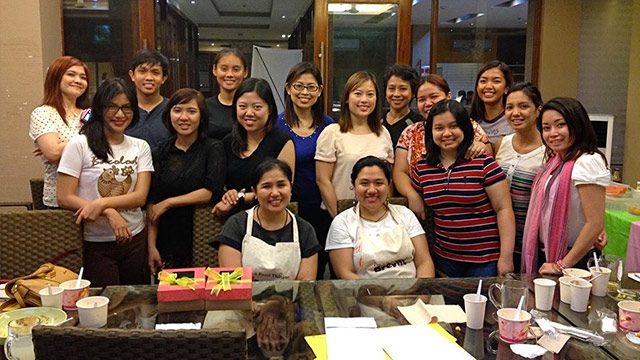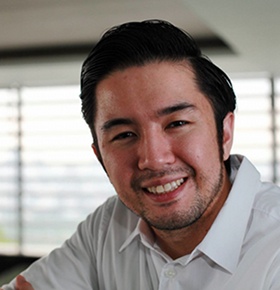SUMMARY
This is AI generated summarization, which may have errors. For context, always refer to the full article.

Opened in May 2013 and founded by entrepreneur Allan L. Cristobal in Quezon City, 47 East is a part of the growing wave of coworking spaces in the Philippines. Zar Castro, a marketing consultant at 47 East, defines a coworking space as “a shared workspace frequently used by freelancers, entrepreneurs, and people with flexible work schedules.”
Community building in Quezon City
Castro is careful to differentiate co-working spaces from other venues that people can work from, such as coffee or internet shops. “More than just a place, people choose to try out coworking spaces because of the culture and community that also exists there,” she said. “What a lot of people may not realize is that while freelancers and entrepreneurs enjoy a certain amount of freedom, it can also make them feel isolated from time to time.”
She continued, “At times, they need to be surrounded by people who understand what they are going through, people they can learn from.” True to her word, Castro and the team at 47 East are actively trying to build up a supportive community for entrepreneurs in the Quezon City/Katipunan area. They have plenty of work ahead of them.
“Katipunan is often perceived as a place where nothing really happens in the startup scene, when in fact there are a lot of startups in the area,” Castro said. “They’re just off doing their own thing, so there’s no room for collaboration.”
The team is trying to get them involved with 47 East, so there can be a central hub for entrepreneurship in the area. “This year though, we’ve got more QC and Katipunan based startups who are eager to help strengthen the startup/tech community in the area. We’ve formed a Startup Katipunan committee so everyone’s ideas can be consolidated and everyone would get more support for their own initiatives,” Castro said.
As an example, 47 East is planning a hackathon with startups, including Muber, which is led by MIT graduate Francis Plaza and Harvard graduate Leo Lofranco, and Itemhound. Castro and the team are also working with ASES Philippines to promote entrepreneurship to students at the University of the Philippines Diliman and Ateneo de Manila University.
Encouraging entrepreneurship

When a prospective coworker is determining whether to sign up with a coworking space for the long-term, Castro encourages them to look at those two interrelated factors: location and community. “It pretty much comes down to that,” she said. “When you choose a coworking space, you’re basically choosing your other office, so it needs to be a place that’s easy for you to get to and it needs to be a place where you feel comfortable.
In addition to 47 East in Quezon City, the Philippines already has several notable coworking spaces. There is Co.lab, in Pasig, Honeycomb Manila Coworking in Mandaluyong, and A Space Manila.
Castro thinks that coworking spaces help legitimize entrepreneurship as a professional and career path. “While some people have built their careers by happily working in big companies, there are some people who want to do something different, yet they feel like it’s wrong to want that,” she said. “So they do what everyone else is doing, without realizing that they have other options.
“Coworking spaces exist for people like that,” Castro continued. “It’s for entrepreneurs who want to build their own company instead of working in one. It’s for freelancers who want the freedom to go after diverse projects that challenge them and push them, projects they actually enjoy.”
In other words, Castro sees coworking spaces as a way of supporting the entrepreneurial spirit, if not validating it. “It isn’t just shaping entrepreneurship in the Philippines, it’s about providing a place for these people to pursue what they want,” she said. “It’s about trying to connect all of these individuals, making them see so many possibilities for collaboration and helping them build business relationships.”
The business side of coworking spaces
The goal of community building, while admirable, is not without its challenges, many of which are unique to the Filipino context. “Filipinos by nature – most of them anyway – are shy, so sometimes we get coworkers who use the space but they don’t necessarily get to maximize the networking benefits because they’re too shy to reach out,” Castro admitted.
To combat the Filipino tendency toward shyness, Castro and the 47 East team have to be proactive in breaking the ice between coworkers. “What we do is we’re the ones who initiate the conversation,” she said. “Sometimes I’ll see someone I haven’t met and I’ll go and introduce myself, I find out their story, what they do, what they need, and then I try and figure out how to help.”
Castro added, “Or I’d go into a coworking room, say hello to an existing member, and then introduce them to the other members. Having events also helps.
Though community building is always fulfilling, at the end of the day 47 East is still a business, and it must be run like one. “Our biggest challenge is finding that proper balance between business sustainability and the big picture of what we’re trying to do,” he said. “As much as possible we do want to make the space as accessible as we can, which is why the rates are like that, but at the end of the day, it is a business after all.”
“So in order for 47 to grow, from a practical standpoint, we also find other ways to bring in income,” Castro went on. “We get this from the commercial space and event space rentals, as well the dorms on the third floor.”
In this sense, 47 East is very much like any one of the startups that itself houses, and so Castro must wear many hats in helping the space grow. “I work with the 47 East team to try to find ways to differentiate 47,” she said. “I create and uphold the brand identity, I talk to the members, I find out what they need and how we can help, I recommend the rates and the mechanics for membership, and then we assess if it works, and we adjust it if it’s needed.”
Castro summed up the work at 47 East as such: “It works like a startup – it’s all trial and error, constant growth and adjustment.” In addition to experimenting with events, for example, 47 East has built a showroom/art gallery in front of their building, so as to reach out to and appeal to more artists and creatives.
Efforts to differentiate 47 East from other coworking spaces and workspaces will ultimately benefit their coworkers, both current and future. “That’s what coworking communities are for,” Castro concluded. “It’s not just a place. It’s an entire ecosystem of people and networks and connections and opportunities.” – Rappler.com
 Rappler business columnist Ezra Ferraz is a managing partner at ZipMatch, which is backed by Ideaspace, among other investors. He brings you Philippine business leaders, their insights, and their secrets via Executive Edge. Follow him on Twitter: @EzraFerraz
Rappler business columnist Ezra Ferraz is a managing partner at ZipMatch, which is backed by Ideaspace, among other investors. He brings you Philippine business leaders, their insights, and their secrets via Executive Edge. Follow him on Twitter: @EzraFerraz
Add a comment
How does this make you feel?
There are no comments yet. Add your comment to start the conversation.